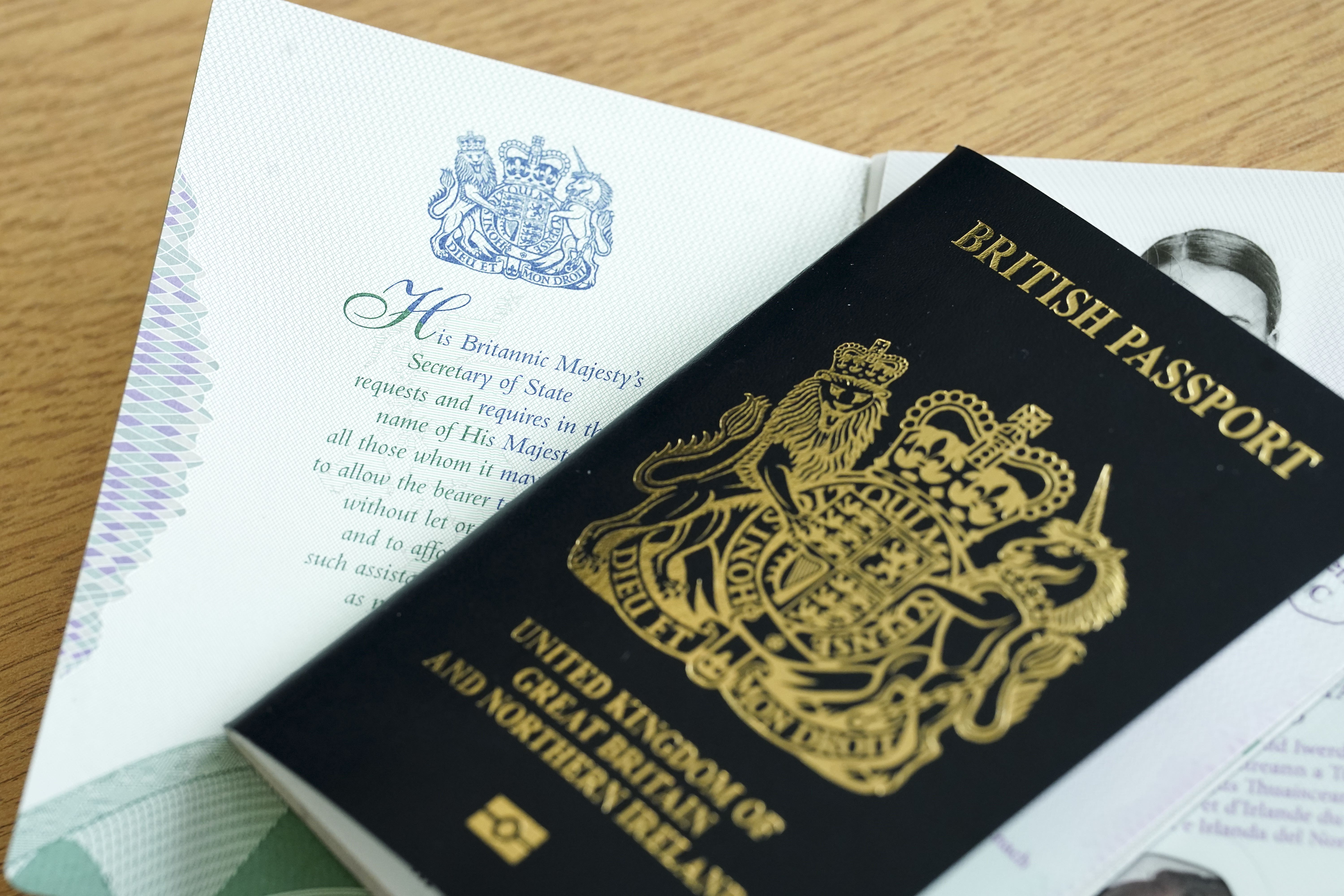Can a passport’s extended expiry date be rejected?
Simon Calder answers your questions on compensation, Interrail and the nationalisation of our railways


Q My UK passport was issued in October 2014 but has an expiry date of June 2025. Will this extended expiry cause problems when I travel to Chile, Ecuador and Brazil this June please?
Clare Woolford
A There appears no limit to the number of questions about passport validity. No criticism of you intended: it simply reflects the state of uncertainty we have managed to create on the crucial issue of “will my destination let me in?”
Until 2018, the UK had the sensible and generous policy of renewing passports for over 10 years. The thinking was: if you apply for a renewal when you still have eight months remaining on your existing travel document (which, I suspect, was your situation), then you should not lose the unexpired time.
While the UK was part of the European Union, no one had a problem with that situation: member states, being sovereign, had free rein with the length of validity of passports. (This extended to the colour of the cover, so if anyone tries to tell you that “blue” passports comprise a Brexit benefit, remind them that EU member Croatia has actual blue passports.)
Once we had voted democratically to leave the European Union, the British government negotiated for us to become “third-country nationals”. With that status, we agreed to accept the EU’s long-stated position on passports from such countries: they cannot be used for entry once they are 10 years old.
As far as I know the European Union is alone in worrying about the longevity of passports beyond 10 years. Every other nation looks only at the expiry date. For Brazil and Ecuador, it must be valid for at least six months from the date of entry; and for Chile, a minimum of one day should remain on the date you intend to leave the country. So you can happily visit all three countries up to and including December 2024 – the exact date being six months before your passport expires, and you are able to trade it in for a “blue” one.

Q We were flying to Goa but were unable to land immediately because of fog. We were diverted to Mumbai due to running low on fuel while circling. Once we had eventually landed at Mumbai we were left on the plane on the tarmac for more than six hours before finally flying to Goa. I applied for compensation but this was rejected. Is this right?
Catherine M
A How frustrating. It must have made for a dismal start to a trip. But I am afraid that even though closures for fog are far from unusual at Goa’s Dabolim airport – located on a peninsula jutting out into the Indian Ocean – the airline can claim “extraordinary circumstances” and avoid paying out.
The rather rambling text from the European air passengers’ rights rules reads: “An air carrier is exempted from paying compensation in the event of cancellation or delay at arrival if it can prove that the cancellation or delay is caused by extraordinary circumstances which could not have been avoided even if all reasonable measures had been taken.”
Weather is regarded as beyond the airlines’ control. The carrier is allowed a free pass whether fog impacts a flight directly – as in your case – or delays future departures, for example because the plane was stuck on the ground in Goa for six hours. My first visit to Shanghai suffered a similar fate, with a long diversion back to Beijing and several hours on the ground. You and I can only put such delays down to experience and hope for better luck next time.
Incidentally, European air passengers’ rights rules apply on all flights from the UK or EU. But if you fly out of Goa to the UK on a non-British or European carrier, there is no entitlement in the event of delay, cancellation or overbooking.

Q I’m 20 and have just started planning an Interrail trip around Europe for a month this summer. I’m a student and could use advice on keeping costs to a minimum. What are your top tips on keeping spending low whilst still having a great time?
Stuart N
A I am delighted to hear about your plan; Interrail has been providing adventures for over half a century, and will, I am sure, continue to do so this summer.
Your Interrail pass includes the right to travel on Eurostar to Paris, Brussels or Amsterdam – if seats are available – for a supplement starting at €32 (£28). It may be, though, that you can find budget flights from the UK to Continental Europe for less than this, which will save cash and preserve the time on your pass. Last summer, when I had a three-month pass, I made repeated trips based on cheap flights.
Next, avoid those annoying countries where national rail operators demand a supplement for travel on express trains – even if they are the only practical trains available. That means France, Spain and Italy. On trips through France last summer I spent a small fortune on a series of €10 supplements for TGV expresses, including for short distances at low speed.
Germany, Belgium, the Netherlands, Austria, Denmark and Switzerland are much better at allowing Interrailers to use the fastest trains without penalty. But of those countries, the last two are painfully expensive for living costs. Eastern Europe – starting in the old East Germany and including Poland, the Czech Republic, Slovakia and Hungary – is much more affordable territory.
Assuming you plan to stay in backpacker hostels, this itinerary will take you to many of Europe’s best locations: Amsterdam, Hamburg, Berlin, Szczecin, Gdansk, Warsaw, Krakow, Vienna, Prague, Munich, Cologne and Brussels. If you need some beach, then consider Sopot (next to Gdansk). Or dip down from Austria into Slovenia and aim for Piran and neighbouring Portoroz on the Adriatic – much cheaper than adjacent Italy.

Q When are we going to see the government solve our railway issues? Are Labour likely to have any more success? Avanti are still a joke yet were awarded a new contract. Andy Burnham makes a very good case for change.
Phil 7
A To take your points in order: on the government and its relationship to rail, allow me to quote one of the railway industry’s most respected figures, Nigel Harris. He believes that Rishi Sunak is “the most anti-rail prime minister we’ve ever had”. The scrapping of HS2 north of Birmingham, the lack of any solution to the national train drivers’ dispute that has dragged on for 18 months and the prime minister’s preference for helicopters over trains does not suggest the current regime is embracing the rail industry. So I believe we may have to wait until another government is in power before the deep-rooted problems in the rail industry are properly tackled.
On this subject, Labour has been heckling relentlessly. But were the current opposition to take control it will find itself with exactly the same problems as the Conservatives: a collapse of rail revenue (and ticket sales on the Tube); toxic industrial relations, with rail unions keen to show that they are as powerful now as they were in the 1980s, and a growing belief among passengers that the railway is in managed (or, perhaps, mis-managed) decline. The problem needs money, goodwill and expertise thrown at it, and I am not sure that an incoming Labour chancellor will have rail particularly high on the agenda.
“Avanti are still a joke yet were awarded a new contract. Andy Burnham makes a very good case for change.” Burnham, the Greater Manchester mayor, knows that Avanti West Coast makes an easy target. But TransPennine Express and Northern Trains, both in public ownership, are also in poor shape. So the cry of “It’s all the privatised companies’ fault” is rather hollow. The government specifies all the trains and fares, and full nationalisation, as demanded by Burnham and many others in the Labour movement, will not provide any easy solutions.
Email your question to s@hols.tv or tweet @simoncalder






Join our commenting forum
Join thought-provoking conversations, follow other Independent readers and see their replies
Comments